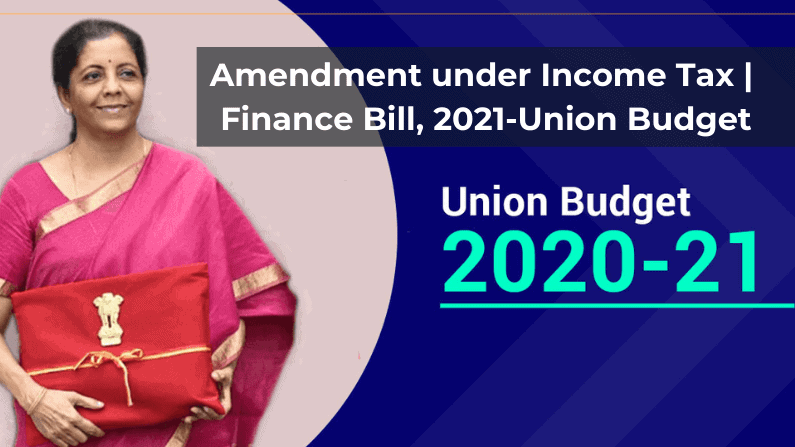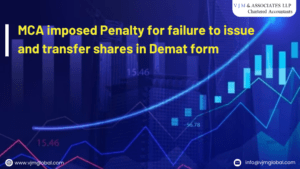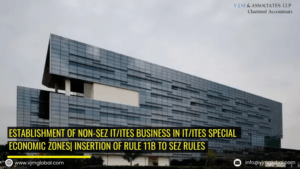Following are the amendments proposals in the Finance Bill 2021
1. TDS in case of specified senior citizen and exempt for filing ITR
For the ease of compliance , the senior citizens of the country (aged 75 years or above) are proposed to exclude from filing of Income Tax Return subject to fulfilment of following condition:
- senior citizens must have only Interest Income apart from pension Income.
- Tax has been deducted under section 194P on such interest Income by the bank.
- The bank where interest income credited should be the same where pension is credited into the senior citizen’s Account.
- Declaration has been furnished to the specific bank containing such details as may be prescribed.
2. TDS on payment for purchase of goods
- A new provision is proposed to insert for TDS deduction on Purchase of Goods.
- As per Section 194Q, every buyer is required to deduct TDS @ 0.10% on purchase of goods made from resident sellers where value of purchase or aggregate value of purchase exceeds INR 50 lacs during the previous year.
- Further, Section 194Q shall apply only on the person whose Gross sales or total turnover exceeds INR 10 crore during the preceding Financial year.
- However, provisions of this section shall not apply to a transaction on which:
- tax is deductible under any of the provisions of this Act; and
- tax is collectible under the provisions of section 206C other than a transaction to which sub-section (1H) of section 206C applies.
- In case of non-availability of PAN, TDS shall be deducted at the rate of 5%.
3. Special provision for TDS for non-filers of income-tax return
- For non-filers of Income Tax Return, more stringent provisions has been introduced for deduction of TDS.
- Where tax is required to be deducted under Chapter XVII-B on any sum payable to specified persons, in case, TDS shall be deducted at higher of the following rate:
- Double the rate specified in Chapter XVII-B or
- 5%
- Specified person means a person who has not filed his Income Tax returns for immediately 2 proceeding years for which the time limit of filing return of income under section 139(1) has been expired; and the aggregate of TDS and TCS in his case is INR 50,000 or more in each of these two previous years.
- Specified person also does not include non-residents not having Permanent Establishment in India.
- However, the above provision is not applicable for the transactions where TDS is required to be deducted under sections 192, 192A, 194B, 194BB, 194LBC or 194N.
- This provision shall become applicable w.e.f. 1st Jule, 2021.
4. Special provision for TCS for non-filers of income-tax return
- Like TDS, similar provisions has been inserted under TCS also for non-filers of Income Tax return by virtue of Section 206CCA.
5. Threshold limits increase from 5 cr to 10 cr subject to certain contiditions
- In order to demote cash transaction, Finance Bill has proposed to enhance threshold limit for tax audit from INR 5 Crores to INR 10 Crores where:
- Total receipt for sales in cash does not exceeds 5% of total total turnover and
- Total payments made for expenses in cash does not exceeds 5% of total expenses.
- However, where any of the above mentioned conditions is not satisfied, threshold limit is still INR 1 Crore..
6. Relaxation by reducing the time limit of reopening of Assessment i.e. reassessments.
- A major relaxation has been provided to taxpayers by reducing the time limit of reopening of Assessment.
- Finance Bill has proposed to reduce the time limit for reopening of assessment from 6 years to 3 years from the end of the relevant assessment year.
- Re-opening is proposed to be allowed upto 10 years from the end of relevant assessment year where there is any evidence that undisclosed income is INR 50 lakhs or more for the year. Earlier, in case of undisclosed income, Assessment could have been re-opened upto 16 years.
- Assessments are re-opened only in cases flagged by the system on the basis of data analytics or objection of CAG or in search/survey cases.
- It is also proposed to reduce the time limit for general assessment or processing of income tax return by 3 months and also for filing of returns.
7. Advance Tax liability will arise on dividend income only after the dividend’s payment/declaration
- It has been proposed that Advance Tax liability will arise on dividend income only after the dividend’s payment/declaration have been done.
- However, Deemed Dividend (As given under Section 2(22)(e)) is not to be considered for this purpose.
8. Provisional attachment of property where impose penalties exceed 2 cr, in case of false entry of omission of entry in books of accounts
- Under existing provisions, penalty provisions are given in cases where false entry or omission of entry is made in books of accounts with an objective of tax evasion.
- However, Finance Bill has proposed that in case where the amount of penalty to be imposed exceeds INR 2 Crores, then the proper officer shall have the power to provisionally attach the property of the assessee to protect the interest of the revenue.
9. Income tax on interest income earned on contribution exceeding INR 2,50,000 to Provident fund
- Under the existing provisions, any payment from provident funds is exempted.
- However, Finance Bill has proposed to levy Income tax on interest Income with respect to investment made in Provident fund in excess of INR 2,50,000.
- E.g. Contribution made to provident fund is INR 3,50,000 during any year. Then interest attributable to amounts exceeding INR 2,50,000, i.e., INR 1,00,000 shall be liable to Income tax. Interest income on investment upto INR 2,50,000 shall continue to exempt.
- This provision shall apply for investment made on or after 1st April, 2021.
- Further, such interest income on amounts in excess of INR 2,50,000 shall be liable to Income Tax as Capital Gains under Section 45. It shall be deemed to be the income of the previous year in which such amount has been received.
10. Other Amendments
10.1 Set-up of Dispute Resolution Committee vide Section 245MA (Clause 66 of Finance Bill)
DRC is to be constituted for the small taxpayers where the litigation is to be reduced and to give a driving force to resolve disputes for small taxpayers. Following are the features of the committee:
- A taxpayer who is having taxable income up to 50 lakh and disputed income up to 10 lakh are eligible to approach the committee.
- The procedure of the committee will be conducted in a faceless manner for ensuring efficiency, transparency and accountability.
- Further, the previous commission (Settlement commission) shall be discontinued from 1 february 2021 however pending cases shall be decided by an Interim Board if opted by the applicant
10.2 Extension of time limit for claiming Deduction in respect of interest on loan taken for certain house property under Section 80EEA” (clause 24 of Finance Bill 2021)
- For encouraging purchase of an affordable house, the eligibility period for claim of additional deduction under section 80EEA for interest of 1,50,000 paid for loan taken for purchase of an affordable house has been extended to 31st March 2022.
- Extend the eligibility period for claiming tax holiday for affordable housing projects by one more year to 31st March,2022.
- For migrant workers, it is proposed to allow a new tax exemption for Affordable Housing Projects.
10.3 Extension of time limit of claiming benefit under Section 54GB-”Capital gain on transfer of residential property not to be charged in certain cases”
Eligibility period to claim tax holiday for the start-ups has been extended by one more year upto 31st march, 2022. Further, to attract investment in start-up, extension of eligibility period of claiming capital gains exemption under section 54GB for investment made in it by one more year to 31st March 2022.
10.4 Set-up of Board of Advance Ruling
For faster disposal of cases, Authority for Advance Rulings shall be replaced by Board of Advance Rulings. Addition to this appeal against the order of such a Board is allowed in the High Court.
10.5 Faceless Income Tax Appellate Tribunal (ITAT)
A faceless Income Tax Appellate Tribunal (ITAT) shall be established in which the Tribunal and the appellant shall be communicating electronically. However if any personal hearing is needed it shall be done through video-conferencing.
10.6 Increase in Differential limit under section 43CA
In case of sale of a residential property, where consideration received is less than value adopted by stamp duty valuation authority then It is proposed to increase the safe harbor limit from 10% to 20% for the specified sale of residential units. Government proposed the above to galvanise Home buyers and real estate developers.
10.7 Relaxation in Due date of filing of Income Tax Return
- Time limit of filing of Income tax return under Section 139 has been extended to 31st October of the Assessment year from 30th September for the spouse of a partner of a firm who is required to get his accounts audited under Income Tax Act. Earlier, the benefit of extended date was available only to the partner.
- Where a partnership firm is required to furnish a report under section 92E of the Income Tax Act, 1961, due to filing of Income tax return for its partner has been extended to 30th November of the assessment year.
- Further, revised return and belated return can be filed upto 31st December of the Assessment year. Earlier, assessee were allowed to filed belated return upto 31st March of the Assessment Year.
10.8 Amendment with respect to Goodwill
- Depreciation on Goodwill:
- Under existing provisions, as per Hon’ble Supreme Court in the matter of M/s Smiff Securities Limited [(2012)348 ITR 302 (SC)] held that goodwill of a business is an asset under section 32 of the Act and therefore, goodwill is a depreciable asset.
- Accordingly, any goodwill which is bought by the assessee forms part of the block of Assets and Depreciation can be claimed on the same at the rate of 25% p.a..
- However, Finance Bill 2021 has proposed to remove Goodwill from the block of Assets (as defined under section 2(11)).
- Further, Finance Bill, 2021 has proposed to remove Goodwill from definition of “Assets” given for the purpose of Section 32.
- Therefore, no depreciation shall be allowed on goodwill bought.
- Capital Gains
- Under existing provisions, Short term Capital gain is computed on sale of depreciable assets under section 50 of the Income Tax Act.
- Finance Bill, 2021 has proposed that, for the purpose of computation of capital gains on goodwill, where goodwill has been purchased and depreciation has been claimed in any FY upto 31.03.2021, cost of acquisition shall be net of Written Down Value of Goodwill as on 31.03.2021.
- In other cases, i.e., Goodwill acquired on or after 01.01.2021, cost of acquisition shall be:
- In case of purchase of goodwill, purchase price.
- In case where goodwill is acquired by other source such as will, succession, dissolution of firm etc, COA shall be the purchase price of previous owner.
- In any other case such as Self-generated goodwill, COA shall be NIL.
10.9 Exemption for Leave Travel Concession (LTC) on cash basis
- Under Existing regime, Exemption of Leave Travel Concession was eligible only when actual expense has been incurred by the employee on travelling to any place in India. If LTC has been received by the employee and the same has not spended then it is liable to Income Tax.
- Finance Bill, 2021 has proposed to provide exemption to LTC received in Cash basis subject to fulfill of conditions as may be prescribed including the condition of incurring such expense within specified time period.
10.10 Rationalisation of taxation of Unit Linked Insurance Plan (ULIP)
- Under the existing regime, any sum received from any life insurance policy was exempted under Section 10(10D) of Income Tax Act. Exemption is also given for sum allotted by way of bonus.
- However, the Finance Bill has proposed to withdraw tax exemption with respect to Unit Link Insurance policies where the amount of premium payable for any of the previous year during the term of such policy exceeds INR 2,50,000. Therefore, any amount received on maturity of such insurance policy shall be liable to Income Tax.
- However, amendment shall be applicable on policies taken on or after 1st February, 2021. Therefore, proceeds of any policies taken earlier shall continue to be exempted.
- Further amount received on death shall remain exempt without any limit.
10.11 Deduction with respect to delay in deposition of Employees Contribution to EPF and ESIC
- As per Section 2(24)(x), any amount received by the employer as employee’s contribution toward EPF and ESIC shall be considered as income in hands of employer.
- Under existing provisions, as per Section 36, deduction is admissible for such Employee’s contribution if amount is deposited by employer to the relevant fund on or before the due date.
- Earlier, there was ambiguity around whether deduction can be claimed for the amount deposited after due date or not. Few assessees were claiming deduction under Section 43B-”Certain deductions to be only on actual payment.”
- However, the Finance Bill has proposed that no deduction shall be claimed for such amount under section 43B. Therefore, employee’s contribution deposited to EPF & ESIC account on or after due date shall not be allowed as deduction.
10.12 Clarification for Equalisation Levy
- Existing Provisions:
- Equalisation levy is Charged vide Chapter VIII of Finance Act, 2016 and it is levied on consideration received for supply of specified services by any non-resident person who is not having any PE in India.
- As per section 163- “Extent, commencement and application”, Provisions of Chapter VIII shall apply to :
- consideration received or receivable for specified services and
- Consideration received or receivable for e-commerce supply or services on or after the 1st day of April, 2020.
- Finance Act, 2020 inserted a new, Section 165A, to Finance Act, 2016 to levy Equalisation levy @2% on consideration received by e-commerce operators for supply of goods or services provided by e-commerce operation to residents or other specified persons. Equalisation levy does not apply to e-commerce operators having Permanent Establishment (PE) in India.
- As per Section 10(50) of Income Tax Act, 1961, any income on which equalisation levy is charged is not exempted from purview of income Tax.
- Amendment Proposed:
- Section 163 of Finance Act, 2016: Equalisation Levy shall not be charged on consideration received or receivable by e-commerce operator which are taxable as royalty or fees for technical services in India under the Income-tax Act read with DTAA.
- Therefore, if any amount is received as royalty or fees for technical service then Income Tax on the same shall be charged as per Income Tax Act read with DTAA.
- Section 164-”Definitions” of Finance Act, 2016: Further, it is clarified that if any of the following activity is taking place online then it shall be considered as “Online Sale of Goods” and “Online provisions of Service”:
- Acceptance of offer for sale;
- Placing the purchase order;
- Acceptance of the Purchase order;
- Payment of consideration; or
- Supply of goods or provision of services, partly or wholly
- Section 165 of Finance Act, 2016: It is also clarified that Equalisation Levy shall be charged irrespective that whether the e-commerce operator owns the goods or not or services provided by the e-commerce operator or not.
- This amendment shall have effect from 01.04.2020.
- Section 10(50) of Income Tax Act: Exemption under section 10(50) shall not apply for royalty or fees for technical services which is taxable under Income Tax Act read with DTAA.
- This amendment will have effect from 1st April 2021 and will accordingly apply to the assessment year 2021-22 and subsequent assessment years.
10.13 Capital Gain on distribution of assets at the time of dissolution or reconstitution of firm
Existing Provisions:
- As per Section 45(4)- “Capital Gains”, where any capital asset is transferred at the time of dissolution of any partnership firm or AOP or BOI, then capital gain arising from such transfer shall be taxable in hands of Firm or AOP or BOI in the year of transfer.
- For the purpose of computation of capital gains, Sales consideration shall be the Fair Market Value of the asset on the date of transfer.
- However, government noticed certain loose points under such method of computation such as Self Generated asset is recorded in books of accounts, assets are revalued in books of Accounts, value of assets transferred is more then capital balance etc.
- In case of self Generated Asset is recorded in books of accounts or revaluation of assets, capital gain shall reduce.
Amended Provisions:
- Considering the shortcomings, Finance Bill, 2021 has proposed to amend sub-Section (4) and also proposed to insert sub-section (4A) under section 45.
Section 45(4):
- Section 45(4) shall apply in case of transfer of any capital asset at the time of dissolution of any firm, AOP or BOI and transfer is made to the partners of such Partnership firm or members of AOP or BOI.
- Such transfer represents balance of capital account of such partner/member in firm/AOP/BOI.
- Value of capital assets transferred is more than the capital account balance of such a person.
- Any gain arising from such transfer shall be taxable as “Capital Gain” in hands of firm/AOP/BOI and such gain shall be deemed to be the income of the previous year in which capital asset is received by the partner/member.
- For the purpose of computation of capital gain, fair market value of the capital asset on the date of receipt shall be considered as sales consideration.
- Further, capital account balance of partner/member shall be computed without taking into account any increase in capital account balance made due to re-valuation of assets or due to self-generated goodwill or any other self-generated asset.
- Cost of acquisition of the capital asset shall be determined as per the extant ITA provisions.
Section 45(4A):
- Section 45(4A) shall apply in case any asset other than capital asset of money is transferred to partners/members.
- In such a case, cost of acquisition shall be the balance of Capital Account in the books of Firm/AOP/BOI at the time of dissolution or reconstitution.
E.g.
| Capital Account Balance of partner in firm on date of transfer of asset | INR 25,00,000 |
| Capital Account Balance Enhanced due to recording of Goodwill | INR 2,50,000 |
| Capital Account Balance increased due to revaluation of assets | INR 1,50,000 |
| Cost of Acquisition for the purpose of computation of Capital Gain (Section 45(4A) | INR 21,00,000 |
10.14 Miscellaneous Amendments
- Relaxation to NRI for Income of Retirement Benefit Account: It is proposed to amend rules for balancing on foreign retirement benefit accounts on their income accrued on foreign retirement accounts due to mismatch in tax amount.
- Relaxation of Condition for carry forward of losses and tax neutral Demerger for Disinvestment: To relax the condition of carry forwarding of losses for disinvested PSU in amalgamation. Further to deem the transfer of assets by the PSU to the resulting company as tax neutral demerger.
- Zero Coupon Bonds by Infrastructure Debt Fund (IDF): It is proposed to make Zero Coupon Bonds issued by notified IDF eligible for tax benefit.
- Taxability of Surplus amount received by partners: To rationalise the provisions in relation to partnership firm when partner received any amount or levied taxes on assets in excess of their capital contribution.
- Amendment of section 50 “Special provision for computation of capital gains in case of depreciable assets”(clause 2 of the Finance Bill): where the goodwill of a business or profession forms part of a block in such a block of goodwill does not come under to be depreciable it is amended in the Budget that the depreciation on Goodwill is not allowed. However, deduction of acquiring goodwill is allowed when it is time of sale of Goodwill.
- Clarification for the Slump Sale: It is clarified that slump sale includes all types of transfer.
- Exemption for Small Trusts: Government in purpose to reduce the compliances burden on Small Trusts involving in activity such as educational institutions, hospitals etc. has proposed the exemption. The receipt of annual receipts for these trusts from 1 crore to 5 crores, means there are no various compliances upto 5 crores of annual receipts.
- Carry Forward of loss by Charitable Organisations: In order to provide certainty, it is to clarify that the Charitable Trusts are not allowed to carry forward their loss. However, the loan repayment and replenishment of corpus shall be allowed as application.
- Relaxation in conditions for exemption to Sovereign Wealth Fund & Pension Fund (SWF/PF): To stimulate the number of SWF/PF to invest in Indian Infrastructure, it is proposed in Budget 2021 to relax some of the conditions for availing 100% tax exemption. Relaxation shall be on the prohibition on loans or borrowings, restriction on commercial activities, direct investment in entity owing infrastructure, etc.
- Tax incentives for IFSC (Indian Financial System Code): To encourage IFSC the government has proposed to provide more incentives such as tax holiday for capital gains incomes of aircraft leasing company, tax exemptions for aircraft lease rental paid to foreign lessor, tax incentive for re-allocation of foreign funds in IFSC and tax exemptions to investment division of the foreign banks located in IFSC.
- Alignment of Minimum Alternate Tax (MAT) for Advanced Pricing Agreement (APA) and secondary adjustment: To the Taxpayers in whose case MAT liability has arisen in the year of repatriation of account APA or secondary adjustment, it is proposed to provide relief by aligning the MAT provisions with the year of taxability of such Income.
- Miscellaneous provisions: Apart from above amendment and insertion of the clauses proposal for the following by the Government is as follows:
- Amendment in the provisions relating to processing of returns for allowing certain deductions and adjustment of income reported in Audit Report.
- It is also proposed to enable issuance of notice for calling for returns by the prescribed authority.
- Limited liability partnership shall not be eligible for presumptive tax for professionals.
- Define the term “Liable to tax” to provide certainty. Clause 29(A) is inserted which says “liable to tax”, in relation to a person, means that there is a liability of tax on such person under any law for the time being in force in any country, and shall include a case where subsequent to imposition of tax liability, an exemption has been provided;
- Exemption of dividend payment from levey of minimum alternate Tax (MAT) for forforeign company if the applicable tax rate is less than the rate of MAT.
- It is also proposed that the TDS on dividend paid is to be exempted when paid to real estate Infrastructure trust or Infrastructure Investment Trusts (REIT/InvIT)






